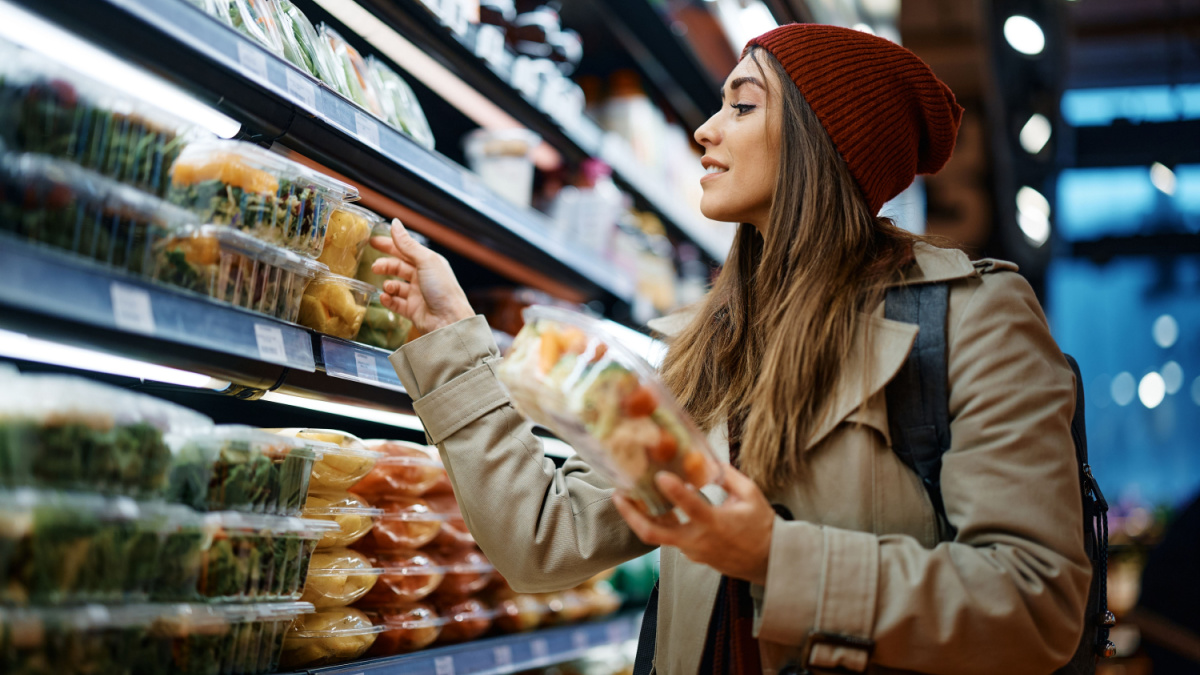Making a difference in your environment and community might seem daunting, but don’t underestimate the power of small actions. Every eco-conscious choice, no matter how seemingly insignificant, adds up to positive change.
Whether you start with composting, supporting local farmers’ markets, or simply using refillable water bottles, you’re contributing to a healthier planet and community. Remember, sustainability is a journey, not a destination. So, let’s celebrate every step we take towards a brighter future!
1. Use Reusable Produce Bags

You know those plastic bags they provide at grocery stores for produce? They might be convenient, but that’s a lot of wasted plastic. Why not bring your own reusable bags instead?
2. Reduce Bottled Water Consumption

Reduce your daily bottled water consumption by using a reusable bottle or a glass instead.
3. Opt for Digital Over Print Media

Many of us still love reading the news, but why not go digital? Going digital reduces paper waste and can be even more convenient than paper!
4. Support Eco-Conscious Fashion Brands

Many fashion brands have made it a priority to choose sustainable materials and make eco-conscious business decisions. Supporting these brands will help you look good and feel good.
5. Choose Eco-Friendly Paint

Not all paints are created equally. Do some research before starting your next big project, and choose an eco-friendly paint that suits your needs.
6. Use a Reusable Face Mask

Reusable face masks are comfier than their disposable alternatives, and they’re less likely to end up in a landfill. It’s a win-win!
7. Support Public Transportation Initiatives

Show your support for public transportation initiatives in your local community. This can help them gain more traction.
8. Reduce Screen Time

Reducing your screen time can help save energy, as well as lowering harmful emissions.
9. Reduce Food Takeout and Delivery

Food takeout and delivery are convenient, but it comes with many disadvantages. From wasteful packaging to transportation emissions, sometimes cooking at home is the most sustainable option!
10. Practice Responsible Camping

Who doesn’t love a good camping trip? It’s important to camp responsibly by picking up after yourselves and others!
11. Reduce Disposable Diaper Wipes

Diaper wipes might seem like an essential if you have a baby in the house. However, there are actually several other options. A great alternative to disposable diaper wipes is simply reusing soft washcloths.
12. Avoid Impulse Buys

Impulse buys might seem harmless and fun, but they can actually have a negative impact. This is because when you buy things impulsively, you often end up not using them! Reduce your waste by avoiding impulse buys altogether.
15 Things That Are No Longer Worth It Because of How Expensive They Have Become

Everything comes with a hefty price tag these days. From indulgences to essentials, the cost of living keeps rising. We used to consider certain items affordable options, but now they’ve become so expensive that they’re no longer worth it. Here are 15 things that have lost their affordability and make us wonder if they are worth it!
15 Things That Are No Longer Worth It Because of How Expensive They Have Become
28 Practical Ways Frugal People Save Lots of Money

Saving money doesn’t have to mean saying goodbye to life’s little indulgences. With a few smart tweaks, you can stash away cash for that dream vacation, rainy day fund, or splurge-worthy purchase without feeling like you’re on a constant budget patrol.
Think of it as a side hustle that pays off without the extra hours. Whether you’re looking to conquer debt or simply boost your bank account, these tips are guaranteed to put more money in your pocket, painlessly.
28 Practical Ways Frugal People Save Lots of Money
15 Ways Frugal People Save Money on Their Grocery Bill

High grocery prices don’t seem to be going anywhere, so it’s crucial to find ways to cut costs to help keep food costs low. Here are fifteen examples of money-saving things you can do to spend less at the grocery store.
15 Ways Frugal People Save Money on Their Grocery Bill

